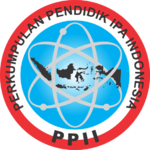Effectiveness of Contextual Learning Model of Problem-Based Teaching in Improving the Achievement and Mastery of Science Subject Material in 4th Grade Students
Abstract
To be able to learn science learning materials properly, we need to listen, see, ask questions about it, and discuss it with others. In addition, students also need to do it, which is describing things in their own way, showing examples, trying to practice skills and doing assignments that demand the knowledge they have gained. This study uses classroom action research of three cycles. Each cycle consists of four stages, namely design, activity and observation, reflection, and revision. The target of this research is the fourth grade students of SDN 03 Mukomuko City. The data obtained in the form of learning outcomes from formative tests and observation sheets of teaching and learning activities. The results showed that student achievement increased from cycle I to cycle III namely, cycle I (64.00%), cycle II (76.00%), cycle III (88.00%). The conclusion of this study is that problem-based contextual learning can positively influence the learning outcomes of fourth grade students of SDN 03 Mukomuko City. This learning model can be used as an alternative in science learning .
Downloads
References
Alidawati, A. (2019). Meningkatkan Hasil Belajar Siswa Dengan Menggunakan Media Gambar Berupa Rumah Adat Tentang Keragaman Budaya Di Indonesia Pada Pelajaran IPS Di Kelas V SD Negeri 03 Kota Mukomuko. Indonesian Journal of Social Science Education (IJSSE), 1(1), 78–84.
Alimuddin. (2014). Penilaian dalam kurikulum 2013. Seminar NAsional Pendidikan Karakter.
Dewi, P. S. (2016). Perspektif Guru Sebagai Implementasi Pembelajaran Inkuiri Terbuka dan Inkuiri Terbimbing terhadap Sikap Ilmiah dalam Pembelajaran Sains. Tadris: Jurnal Keguruan Dan Ilmu Tarbiyah, 1(2), 179. https://doi.org/10.24042/tadris.v1i2.1066
Fuadi, R. (2019). MODEL MANAJEMEN PENDIDIKAN BERBASIS SOLUSI UNTUKMENINGKATKAN PENGELOLAAN PERPUSTAKAAN SEKOLAH. At-Ta’lim : Media Informasi Pendidikan Islam, 18(1), 243. https://doi.org/10.29300/attalim.v18i1.1667
Kemmis, S., McTaggart, R., & Nixon, R. (2013). The Action Research Planner: Doing Critical Participatory Action Research. Berlin: Springer Science & Business Media.
Kusumah, R. G. T., Walid, A., Pitaloka, S., Dewi, P. S., & Agustriana, N. (2020). Penerapan Metode Inquiry Untuk Meningkatkan Hasil Belajar Materi Penggolongan Hewan di Kelas IV SD Seluma. JURNAL PENDIDIKAN MATEMATIKA DAN IPA, 11(1), 142–153. https://doi.org/10.26418/jpmipa.v11i1.34708
Martin, J. (2006). Multiple intelligence theory, knowledge identification and trust. Knowledge Management Research and Practice, 4(3), 207–215. https://doi.org/10.1057/palgrave.kmrp.8500101
Maryanti, S., Kurniah, N., & Yulidesni, Y. (2019). MENINGKATKAN KECERDASAN NATURALIS ANAK MELALUI METODE PEMBELAJARAN OUTING CLASS PADA KELOMPOK B TK ASYIYAH X KOTA BENGKULU. Jurnal Ilmiah POTENSIA, 4(1), 22–31. https://doi.org/10.33369/jip.4.1.22-31
Melasalmi, A., & Husu, J. (2019). Shared professional agency in Early Childhood Education: An in-depth study of three teams. Teaching and Teacher Education, 84, 83–94. https://doi.org/10.1016/J.TATE.2019.05.002
Niyati, M., & Kurniah, N. (2016). Meningkatkan Kecerdasan Logika Matematika Melalui Permainan Tradisional Congklak. Jurnal Ilmiah Potensia.
Prasasti, D. E., Koeswanti, H. D., & Giarti, S. (2019). PENINGKATAN KETERAMPILAN BERPIKIR KRITIS DAN HASIL BELAJAR MATEMATIKA MELALUI MODEL DISCOVERY LEARNING DI KELAS IV SD. Jurnal Basicedu, 3(1), 174–179. https://doi.org/10.31004/basicedu.v3i1.113
Rerung, N., Sinon, I. L. ., & Widyaningsih, S. W. (2017). Penerapan Model Pembelajaran Problem Based Learning (PBL) untuk Meningkatkan Hasil Belajar Peserta Didik SMA pada Materi Usaha dan Energi. Jurnal Ilmiah Pendidikan Fisika Al-Biruni, 6(1), 47. https://doi.org/10.24042/jpifalbiruni.v6i1.597
Suarni, E. (2019). Upaya Meningkatkan Hasil Belajar Matematika Siswa Kelas III Dengan Menggunakan Pendekatan Inkuiri Terbimbing Di SDN 05 Kota Mukomuko. IJIS Edu : Indonesian Journal of Integrated Science Education, 1(1), 63–70. https://doi.org/10.29300/ijisedu.v1i1.1406
Wati, K. I., Saparahayuningsih, S., & Yulidesni, Y. (2017). Meningkatan Keterampilan Motorik Halus Anak Melalui Kegiatan Pembelajaran Membatik Menggunakan Media Tepung Pada Anak Kelompok B PAUD Aisyiyah III Kota Bengkulu. Jurnal Ilmiah POTENSIA, 2(2), 91–94. https://doi.org/10.33369/jip.2.2
Authors who publish with ISEJ: Indonesian Science Education Journal agree to the following terms:
- Authors retain copyright and grant the ISEJ: Indonesian Science Education Journal right of first publication with the work simultaneously licensed under Creative Commons Attribution License (CC BY 4.0) that allows others to share the work with an acknowledgment of the work's authorship and initial publication in this journal.
- Authors can enter into separate, additional contractual arrangements for the non-exclusive distribution of the published version of the work (e.g., post it to an institutional repository or edit it in a book), with an acknowledgment of its initial publication in this journal.
- Authors are permitted and encouraged to post their work online (e.g., in institutional repositories or on their website) before and during the submission process, as it can lead to productive exchanges, as well as earlier and greater citation of published work.












